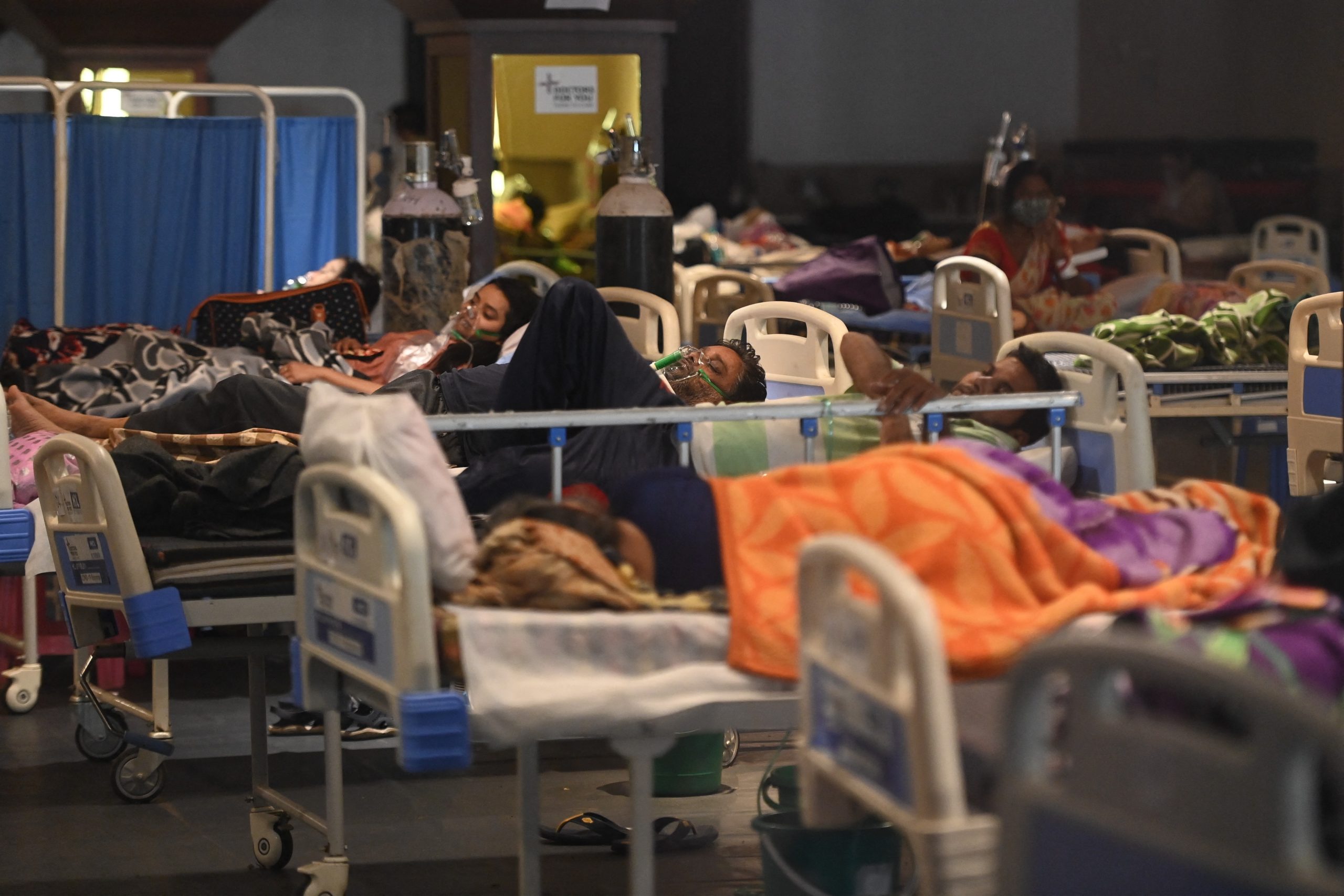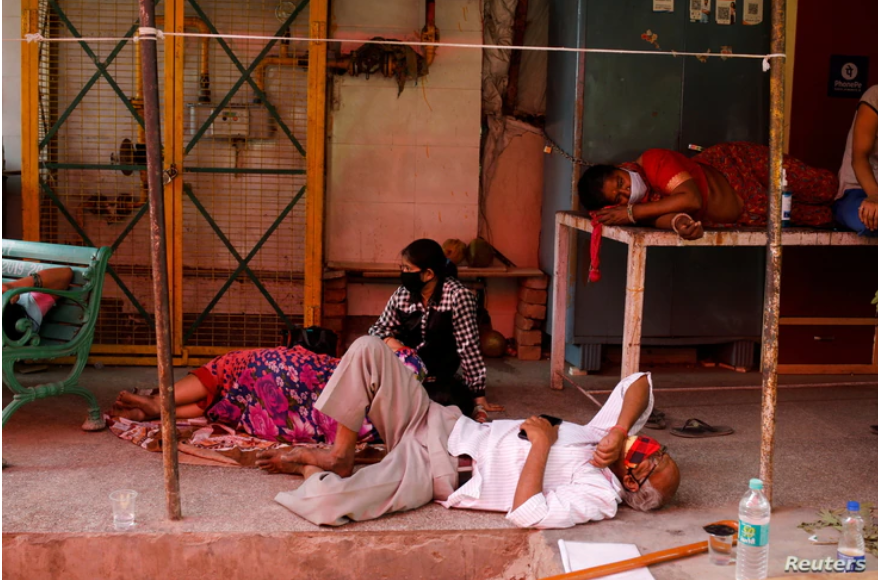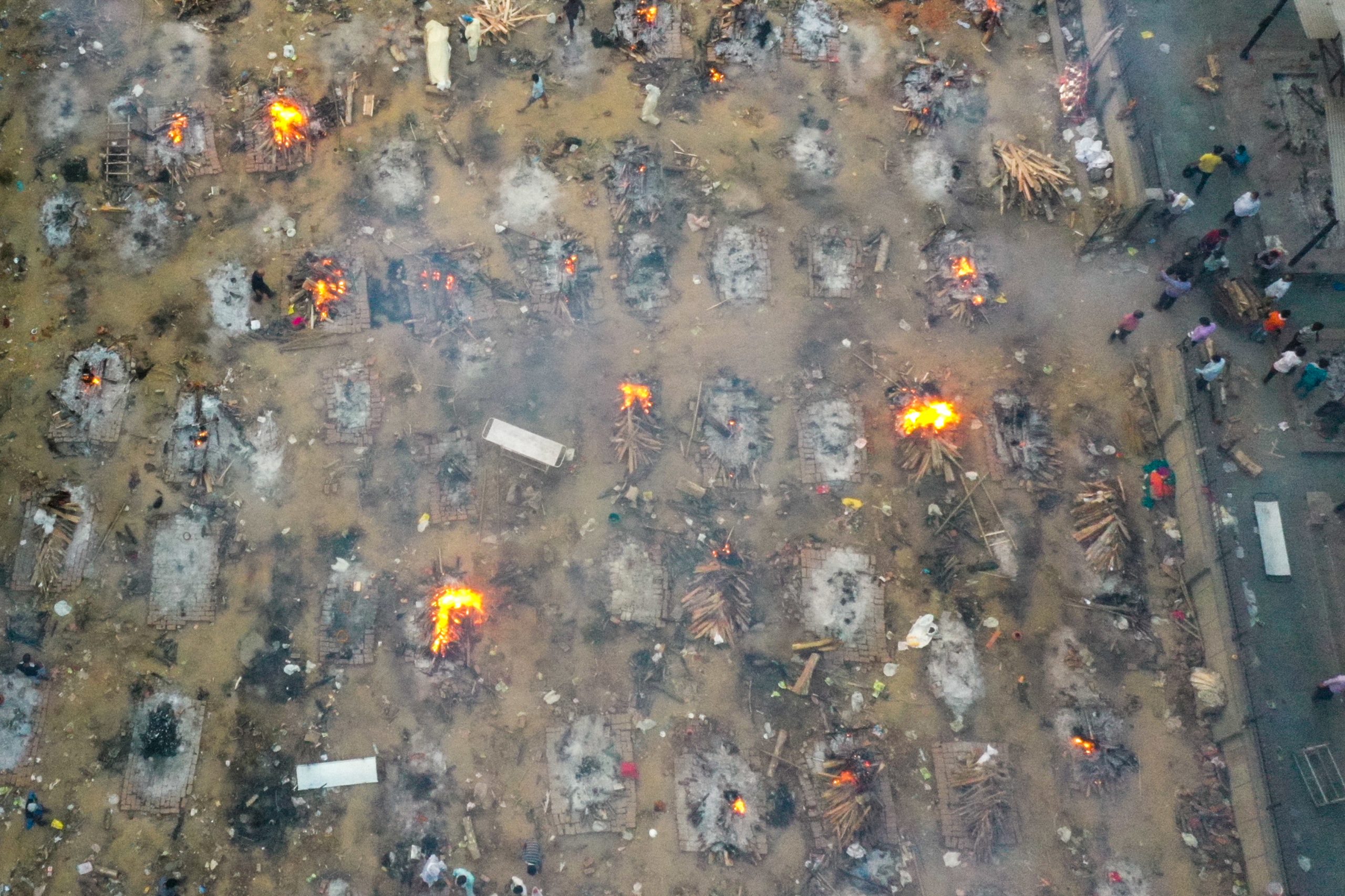By Anjana Pasricha / VOA News
MUMBAI – Despair and anguish have gripped India as the desperate search for oxygen, hospital beds, and medicine continues unabated, with the country’s health-care system buckling under the deadly second wave of the coronavirus pandemic.
In the capital New Delhi, where a more transmissible coronavirus variant has infected entire families, sick family members are desperately seeking medical help for those more severely ill at home or are frantically racing to locate scarce drugs and oxygen cylinders for which a thriving black market has emerged.
It’s a city that now depends on family, friends and social media to navigate through its worst-ever health crisis. People are scared to even open windows and doors for fear of catching the virus, and lonely funerals are being held at crematoriums that are working into the night as the death toll climbs relentlessly.
49-year-old Leena Roy, her husband, son and elderly parents all tested positive for COVID-19 last week. As her mother’s condition worsened, they joined the desperate search for a hospital bed. Her doctor finally located one in a small nursing home in a Delhi suburb whose owner he knew.

After being unable for two days to contact doctors treating her mother, Roy dragged herself there despite running a high fever. She could not meet with any doctor, though, because they all were too busy. Her mother later told her the hospital is so overwhelmed that doctors and nurses have no time to make regular rounds of patients.
After the experience, Roy decided to treat her 85-year-old father at home. She then began another difficult hunt — locating a nurse who could administer an intravenous drip and hunting for a home oxygen supply.
“I made 40 calls yesterday to try and locate an attendant for her. But nobody could provide me one,” says her friend, Suhasini Sood. “She has paid nearly $ 1,000 for an oxygen concentrator but is not sure when it will arrive. The dealer who was supposed to deliver it asked if he could give it to someone who needed it more critically.”
As reports of patients dying at two hospitals that ran out of oxygen panicked the city, oxygen concentrators, which can make oxygen at home, have become the most sought-after devices for those who can afford them.

Hospitals overstretched and labs overwhelmed
In overstretched hospitals, everything from ambulances to nursing staff are running short. Patients sick with the virus are ferrying family members who turn critical to the hospital. And overwhelmed laboratories are unable to cater to the huge demand for tests for the virus or for chest scans and blood tests needed to determine the severity of the infection, leaving people unsure of what treatment they need.
Crematoriums and cemeteries are buckling under the pressure as numbers climb relentlessly of those falling victim to the virus. In New Delhi, city crematoriums are building additional makeshift platforms in parking lots and surrounding parks to cremate the dead.

Experts blame India’s dire situation on a decades-long lack of sufficient attention and spending on public health, and they say the belief the country would not face a second wave made it complacent about variants of the virus.
“We missed the variants that began circulating in India in December and lacked the perception of the havoc they could wreck,” says Jacob John, a virologist and public health expert.
“Now we are fighting a war without a war room,” he says. “All patients who are not seriously ill should be treated at home and only the critically ill should be in hospitals to alleviate the crisis of shortage of beds. But that is not happening.” (VOA) -jlo
